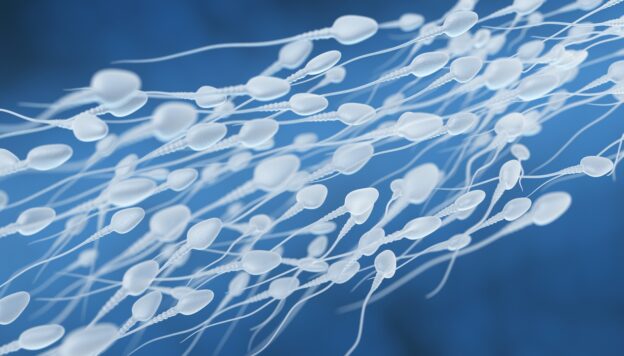Navigating the path to parenthood can be filled with hope and anticipation, but it can also raise concerns, especially when environmental factors threaten sperm health. If you’re trying to conceive, it’s important to understand how these factors affect your fertility and why cryopreservation might serve as a critical safeguard.
The Importance of Sperm Health
Sperm health plays a crucial role in male fertility, significantly impacting your ability to achieve pregnancy. Over time, a male’s sperm changes in quality and quantity, much like a woman’s eggs. Healthy sperm must possess good motility, morphology, and count to successfully fertilize an egg. Any compromise in these factors can hinder conception and increase the risk of infertility.
In today’s world, environmental toxins are ubiquitous, posing potential risks to human health. These toxins, found in various sources ranging from household products to industrial emissions, can negatively influence sperm quality. Understanding these threats is vital for couples trying to conceive and looking to protect their reproductive health.
Types of Environmental Toxins
Unfortunately, the most common environmental toxins that have been known to negatively affect sperm health are part of our surroundings. Environmental toxins typically enter our body’s bloodstream through four main paths: inhalation, ingestion, injection, and skin/eye absorption.
These toxins include:
- Air Pollution: Air pollution involves fine particulate matter and emissions from vehicles and factories. Exposure to polluted air can introduce harmful substances into the body, affecting not just respiratory health but also reproductive health.
- Heavy Metals: Heavy metals such as lead, mercury, and cadmium are found in the air, water, and common food sources. These heavy metals can infiltrate the body through various pathways, posing significant risks to sperm health, particularly for individuals in certain occupations or with specific lifestyles.
- Pesticide: Pesticides used for landscaping and by the agricultural industry include herbicides, insecticides, and fungicides. These chemicals can enter the body through inhalation, ingestion, and skin absorption, accumulating over time.
- Industrial Chemicals: Plastics, bisphenols, and flame retardants are present in many everyday products. These industrial chemicals can disrupt the endocrine system and impact sperm production and quality.
How Environmental Toxins Affect Sperm Health
Countless studies have shown that male sperm can be altered when exposed to environmental toxins. These toxins can potentially decrease sperm motility, cause abnormal sperm morphology, and reduce sperm count.
In addition, environmental toxins can also lead to:
- Oxidative Stress: Environmental toxins generate free radicals that cause oxidative stress, damaging sperm cell membranes and DNA. This can lead to decreased motility and increased DNA fragmentation.
- Hormone Disruptions: Certain toxins, such as polycyclic aromatic hydrocarbons (PAHs), copper, zinc, and lead, mimic or interfere with hormones like testosterone, disrupting the delicate hormonal balance necessary for sperm production and function. These toxins are all found in vehicle exhaust, an environmental derivative impossible to avoid in everyday life.
- DNA Fragmentation: Exposure to environmental toxins can break down sperm DNA, resulting in fertilization problems and increased risks of birth defects.
Cryopreservation as a Protective Measure
Cryopreservation is a process where sperm is collected, frozen at very low temperatures, and stored for future use. The sperm samples are collected and stored at a temperature of -196 degrees Celsius for future use with a fertility treatment. This technique ensures that the sperm remains viable for years, allowing men to preserve their fertility potential.
Sperm cryopreservation is a preventive procedure for males who may require cancer treatments or surgery that can alter their fertility, as well as men who are regularly exposed to environmental toxins. Sperm freezing is also a common process for men who may want to delay starting a family in their early 20s or 30s as the quality and quantity of the sperm can decline over the years.
While cryopreservation can be performed by slow freezing methods, the most common process is through vitrification or fast freezing. The sperm is collected and tested in a laboratory for quality, motility, and viability before being frozen. Healthy sperm is placed in a freezing solution and stored in separate freezers that contain liquid nitrogen.
With careful monitoring and proper storage, the sperm samples can be thawed, tested, and used at a later time. Modern cryopreservation techniques boast high success rates, with studies indicating that the viability of frozen sperm remains remarkably high even after decades of storage.
Benefits of Cryopreservation to Combat Environmental Toxins
Cryopreservation can protect against potential sperm damage, especially due to environmental factors. While free radicals are part of our everyday lives, planning ahead, regardless of your current fertility status, can increase your chances for a successful pregnancy. By freezing healthy sperm before significant exposure to toxins, men can safeguard their reproductive future.
The process of freezing sperm freezing for future fertility treatments using assisted reproductive technologies (ART) such as in vitro fertilization (IVF) or intrauterine insemination (IUI) is a common practice. While these and other fertility therapies are not 100% guaranteed to result in a successful pregnancy, cryopreservation offers infertile men peace of mind that they have viable sperm for the future.
Environmental toxins are a main concern when men are undergoing chemotherapy or have high-risk occupations that expose them to possible contaminants. Young men who partake in global travel, whether it be for leisure or work, are also at a higher risk for exposure to environmental toxins.
Protect Your Fertility Future With Sperm Cryopreservation
For a comprehensive consultation on sperm cryopreservation, speak to the fertility specialists at ONE Fertility Kitchener Waterloo. We understand the impact environmental factors can have on fertility—from oxidative stress to hormonal disruption, these factors can severely compromise sperm quality.
By freezing healthy sperm before exposure to harmful environmental factors, men can ensure their reproductive health remains intact. This empowers men to make informed decisions and preserve their ability to conceive. Contact us today to book a consultation.





